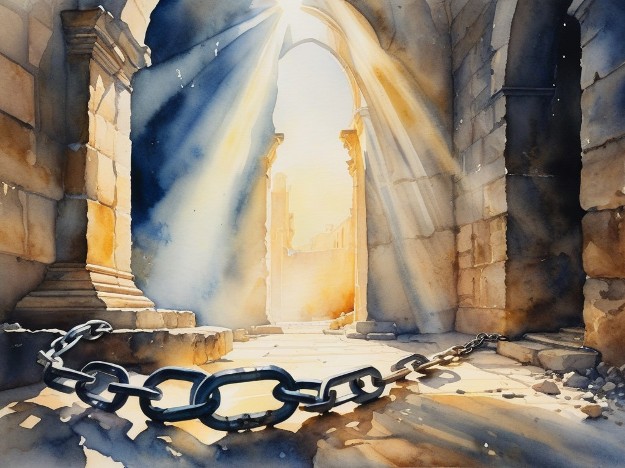The Call to Repentance: A Reflection on 2 Chronicles 36:14-23

In the annals of biblical history, 2 Chronicles 36:14-23 stands as a poignant testament to the consequences of disobedience and the enduring mercy of God. This passage chronicles the final days of ancient Israel before the Babylonian exile, serving as a cautionary tale for believers across generations. As we delve deeper into its significance, we unearth profound insights into the human condition and the timeless call to repentance.
The narrative begins with a sobering depiction of Israel’s spiritual decline: “Furthermore, all the leaders of the priests and the people became more and more unfaithful, following all the detestable practices of the nations and defiling the temple of the Lord, which he had consecrated in Jerusalem” (2 Chronicles 36:14, NIV). Despite God’s covenant with His chosen people, they succumbed to the allure of pagan customs and idolatry, forsaking their sacred heritage for fleeting pleasures.
This downward spiral culminated in divine judgment: “The Lord, the God of their ancestors, sent word to them through his messengers again and again, because he had pity on his people and on his dwelling place. But they mocked God’s messengers, despised his words and scoffed at his prophets until the wrath of the Lord was aroused against his people and there was no remedy” (2 Chronicles 36:15-16, NIV). Despite repeated warnings from prophets like Jeremiah and Ezekiel, the Israelites remained obstinate, deriding the messengers of God and sealing their fate.
The repercussions of their rebellion were swift and devastating: “He brought up against them the king of the Babylonians, who killed their young men with the sword in the sanctuary, and did not spare young men or young women, the elderly or the infirm. God gave them all into the hands of Nebuchadnezzar” (2 Chronicles 36:17, NIV). Jerusalem, the holy city, lay besieged, its walls breached, and its inhabitants subjected to unspeakable horrors. The once-majestic temple, a testament to God’s presence among His people, was desecrated and destroyed.
Yet, even in the midst of judgment, God’s mercy shines forth: “He carried into exile to Babylon the remnant, who escaped from the sword, and they became servants to him and his successors until the kingdom of Persia came to power” (2 Chronicles 36:20, NIV). Despite the severity of their transgressions, God preserved a remnant, ensuring that His promises would endure beyond the darkest of times. After seventy years of exile, He stirred the heart of Cyrus, the Persian king, to issue a decree allowing the Israelites to return to their homeland and rebuild the temple.
In contemplating the relevance of this passage to our modern era, we are confronted with uncomfortable parallels. Like ancient Israel, we inhabit a world rife with moral decay, social unrest, and spiritual indifference. The idols of our age may differ in form, but their allure remains potent, drawing us away from the path of righteousness.
Consider the insidious influence of materialism, which seduces us into pursuing wealth and possessions at the expense of our spiritual well-being. Our incessant quest for validation and success often blinds us to the plight of the marginalized and oppressed, numbing our conscience to the cries of the needy.
Likewise, the pervasive culture of individualism promotes self-gratification above communal solidarity, fostering division and discord within society. We retreat into echo chambers of our own making, insulated from perspectives that challenge our preconceptions and prejudices.
In the face of such spiritual malaise, the call to repentance resounds with renewed urgency. We are summoned to confront the idols that enthrall us, to turn away from the paths of sin and selfishness, and to seek reconciliation with God and one another. Just as the Israelites were called to humble themselves, confess their sins, and return to the Lord, so too are we beckoned to undergo a profound spiritual transformation.
Yet, the promise of repentance is not merely one of judgment and condemnation but of redemption and restoration. Even as we confront the consequences of our disobedience, we are assured of God’s boundless mercy and unfailing love. Like the prodigal son who returns to his father’s embrace, we are met with open arms and the promise of reconciliation.
In conclusion, 2 Chronicles 36:14-23 serves as a timeless reminder of the consequences of disobedience and the enduring mercy of God. As we navigate the complexities of our modern world, may we heed its call to repentance, turning away from the idols that ensnare us and embracing the transformative power of divine grace. Let us humble ourselves before the Lord, seeking forgiveness and renewal, confident in the promise of redemption that awaits those who return to Him.






